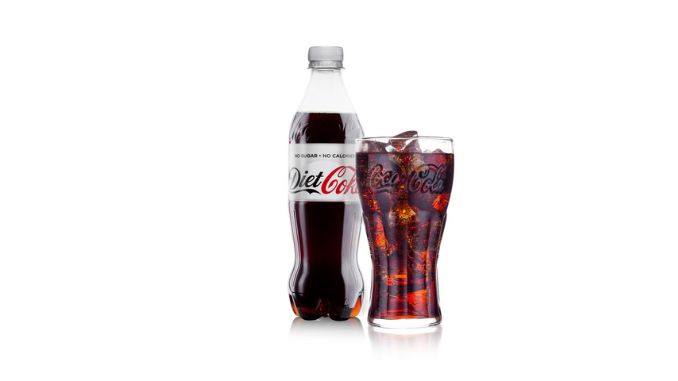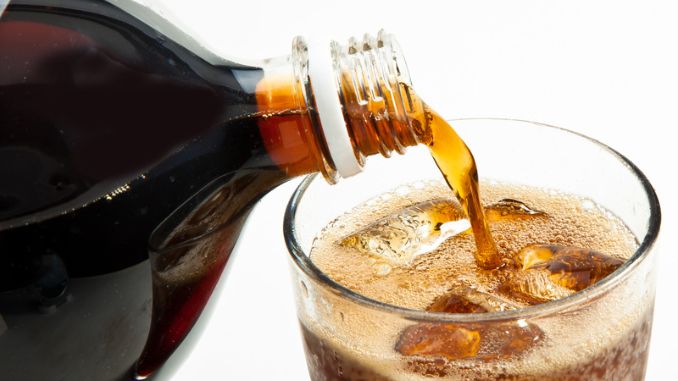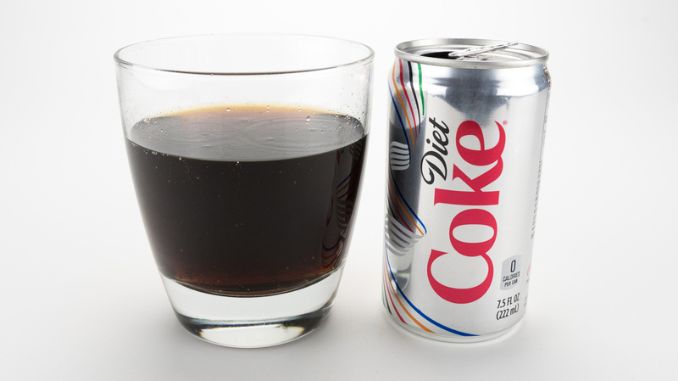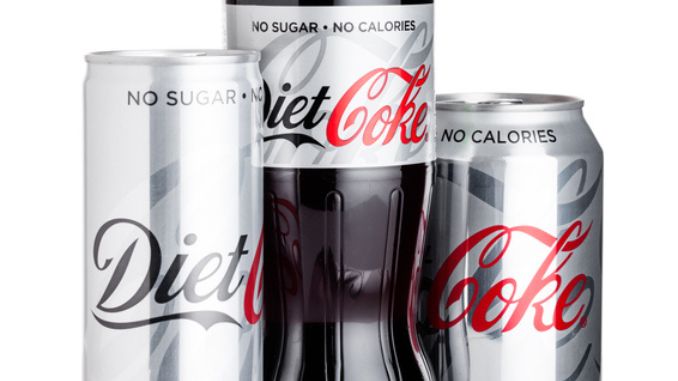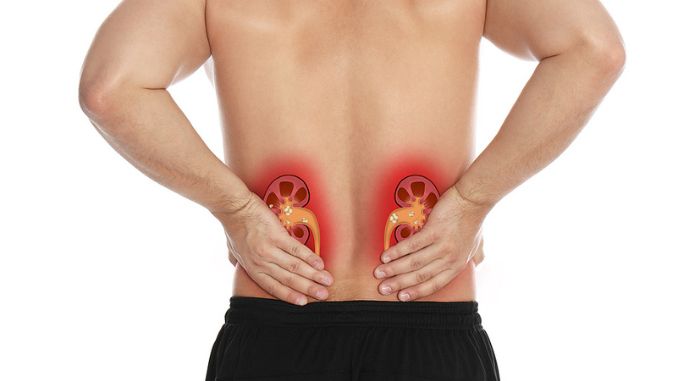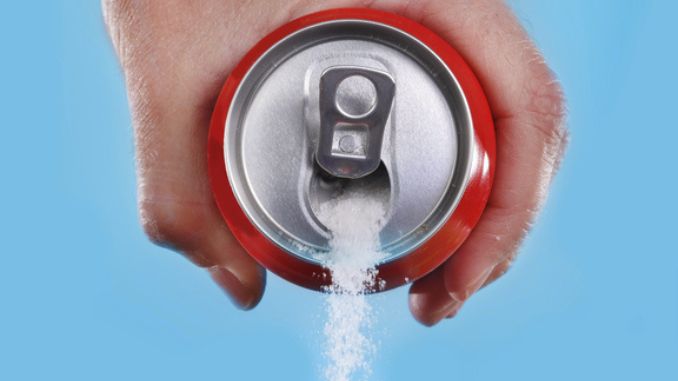It only takes one question to start a debate that can last for days, months, or even years. In this case, the question is, ‘is diet soda bad for you?’ There are countless myths surrounding diet sodas. While diet sodas are far from perfect, are they in any way better than regular sodas? We will figure out that by answering these four major questions in debunking health myths to make you stop drinking diet soda.
What are Popular Diet Soda Myths?
There are many diet soda myths, most of which put a more positive spin on the product. When asked the question, “is diet soda bad for you,” these myths generally make you believe they are so much better than regular soda.
1. Diet Soda is better than regular soda
This is not true. Sugar-free doesn’t mean healthy. The artificial sweeteners used in diet sodas could cause negative side effects in your body.
Artificial sweeteners actually trick the brain. The sweetness from the diet soda signals the brain that calories are on their way. It triggers certain metabolic processes that could lead to weight gain. Gaining some weight isn’t the only concern here. Artificial sweeteners have also been linked to many health risks, such as diabetes, stroke, and heart attack.
Artificial sweeteners have more intense flavors than real sugar. This means that diet sodas could dull your sense of naturally sweet foods over time. What makes it worse is that the substitute sugars are shown to have similar effects on the body as sugar. For example, artificial sweeteners have been known to trigger insulin release, leading to fat storage in your body. This would ultimately lead to weight gain.
So, is diet soda bad for you? Just think about the effects of artificial sweeteners on your body, and you’ll get your answer!
2. Diet Soda helps you lose weight
This is a big no. Even though diet soda can be calorie-free, it doesn’t mean it could help lose weight. Diet soda drinkers have a 70% chance of increasing their waist circumference compared with those who don’t drink diet soda.
3. Diet Soda causes cancer
When scientists studied aspartame, one of the main sweeteners in many diet sodas, they linked its effects to brain cancer. The scientists performed the tests on rats. They offered aspartame at a specific rate and concentration that no human is likely to consume.
Although the result had it linked to brain cancer, it would be almost impossible for someone to consume enough aspartame to have the same results. Many people criticized the study because of this. Even large-scale human studies have found no results to confirm these claims.
4. Caffeine content is the problem
Well, this is hardly the case. For example, a 12-ounce can of Diet Coke has 46 mg of caffeine, while Diet Pepsi has 36 mg of caffeine. These levels are reasonable and considered safe.
Too much caffeine obviously negatively affects the body, and some medications do not respond well to excessive amounts. This means that caffeine isn’t what makes diet soda so unhealthy.
What Happens After You Drink Diet Soda?
When you learn what happens when you finish a diet soda, you’ll find you can answer the question ‘is diet soda bad for you’ quite easily. Let’s look at these effects.
First 10 Minutes
Diet soda tricks your taste buds and attacks your teeth. The phosphoric acid damages the enamel, while the artificial sweeteners affect your blood sugar and insulin levels. The aspartame triggers the taste receptors, tricking your body into believing it has just processed sugar. Indeed, stop drinking diet soda to avoid further health complications.
20 Minutes
In general, Sodas trigger insulin, which causes your body to go into fat-storage mode. Artificial sweeteners also put your body at risk of metabolic syndrome related to diabetes and cardiovascular problems.
40 Minutes
The combination of caffeine and aspartame can create short additive highs similar to the effects of some drugs, such as cocaine. Excitotoxins are released and make your brain exhausted as it overstimulates the neuro-receptors. This is even worse when consumed regularly.
60 Minutes & Beyond
Diet soda depletes nutrients. It also makes you hungrier and thirstier. Think of soda as a gateway to more soda or other unhealthy items you believe aren’t all that bad. You’re now stuck in a loop of unhealthy foods and beverages.
Zero-calorie drinks have no nutritional value and will never quench your thirst as they dehydrate the body instead of hydrating it. You could suffer from poor concentration, irritation, and fatigue without water.
You’ll find that diet sodas cause you to become hungrier as it’s associated with a drop in leptin, an appetite-regulating hormone. This also leaves you less satisfied with normal amounts of food. Since calories in soda aren’t present in diet sodas, a cocktail of chemicals is used as an alternative. This causes your body to store more fat, which obviously makes you gain weight, so stop drinking diet soda.
Why is Diet Soda Bad for You?
Here are more reasons to reconsider drinking diet soda and help you answer the burning question: ‘is diet soda bad for you?’
1. Terrible Hangovers
It’s popular to mix alcohol with diet sodas. In reality, drinks or cocktails made with diet soda can cause you to get drunk faster. Sugar-free mixers allow the liquor to enter the bloodstream at a more accelerated rate compared with sugary drinks. Stop drinking diet soda to avoid a much bigger buzz and a horrible hangover.
2. Headaches
Studies show that artificial sweeteners trigger headaches in many people. Since diet sodas are full of artificial sweeteners, it increases your risk of suffering from headaches and migraines.
3. Rotting Teeth
With a pH of 3.2, diet soda is very acidic. Compare this with water with a pH of 7 and battery acid with a pH of 1. Acid readily dissolves the enamel; even if soda is diet, it doesn’t mean it is any less acidic. Soda causes teeth to decay, leading to cavities or, ultimately, tooth loss.
4. Kidney Problems
A study has shown that diet sodas could hurt your kidneys. Once again, sweeteners may be responsible for declining kidney health, as sugary drinks didn’t have the same effect.
5. Metabolism Issues
Just one soda a day could mess with your metabolism and increase your metabolic syndrome risk. Symptoms include belly fat, high cholesterol, and an increased risk of heart disease.
The long-term effects of diet soda are an even more serious issue:
1. Obesity
Many people swear off sugary drinks when dieting or reducing sugar intake. Some, however, think they don’t need to eliminate these products. They must use a version containing no sugar and turn to diet soda.
A common misconception is that diet soda helps you lose weight, but this couldn’t be further from the truth. The more you consume, the higher your chance of becoming overweight. This is because artificial sweeteners prevent your body from regulating calories.
2. Reproductive Issues
Diet soda has been linked to reproductive issues as soft drinks are coated with endocrine disruptor bisphenol A (BPA). This has been linked to numerous health concerns.
3. Cell Damage
Diet soda contains ingredients you can’t find in a regular soda –mold inhibitors. It also has sodium or potassium benzoates. These are some of the major differences between diet sodas and regular sodas, which don’t contain these preservatives. These chemicals could cause severe damage to your DNA in the mitochondria. They can damage it to the point where it shuts it down altogether. Studies show this preservative (benzoate) could cause hives, asthma, and other allergic conditions. Efforts have been made to replace sodium with potassium benzoate, another preservative. Both are classified as mild irritants to the skin, eyes, and mucous membranes.
Are sugar-free drinks good for you? It really just depends on what sugar substitute is used. Artificial sweeteners are the most harmful option, but other, supposedly safer substitutes can be equally harmful.
How to Avoid Diet Soda Weight Gain?
Some answers have been provided to anyone who still wonders, ‘is diet soda bad for you?’ Let’s talk about how to avoid diet soda weight gain. In reality, there is no way to enjoy diet soda and lose or avoid weight simultaneously. To do this, you need to cut it out altogether.
Here are some healthier alternatives:
1. Water
Although there are flavored waters, these still contain artificial sweeteners –something you want to avoid. As an alternative, try natural flavoring options such as lemons, oranges, watermelon, cucumber, mint or lime. You can even be creative and cut up fruits and freeze them into ice blocks.
2. Juice and Seltzer
To stop drinking diet soda, it’s a good alternative to mix the juice with seltzer for a tastier, healthier, and less expensive drink. A thick, tart juice, such as cranberry, pomegranate, or grape, makes a great jeltzer (juice and seltzer) base and provides many health benefits. According to research, cranberry juice protects you against urinary tract infections and kidney stones. Pomegranates are rich in Vitamins C and B, while grape juice has antioxidants that protect your brain and blood vessels.
3. Green Tea
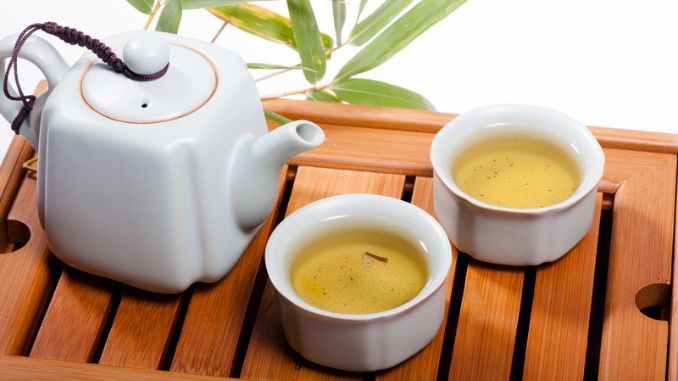
Green tea is incredibly beneficial for the body. It reduces the risk of several types of cancer, heart disease, kidney stones, cavities, and hypertension (if taken without sugar or milk). Green teas are available in wide varieties. You can enjoy it iced or hot. If you want it a little sweeter, enjoy it with some honey.
4. Fake Lemon-Lime Soda
Enjoy your favorite citrus-flavored soda but just a little differently. Get some sparkling or seltzer water, and add lemon, lime, and a dash of Stevia. Stevia is a calorie-free and low-carb sweetener. Don’t overuse it.
5. Red Wine
Like to drink? Well, red wine is the best choice for you –in moderation, of course. Is diet soda bad for you? Yes, but wine isn’t, so drink up! Red wine lowers your risk of cancer, heart attacks, and Alzheimer’s disease. It’s recommended that women enjoy a glass a day and men take two glasses daily to reap the rewards. When drinking wine, choose one with no additives such as sulfites, which could cause headaches and other allergic reactions.
6. Veggie Drinks
You know what they say, drink your vegetables! It offers a quick, low-calorie way to enjoy all its benefits. Vegetables contain less sugar than fruit juices. However, vegetable juice isn’t perfect, as it can be high in sodium. Attempt to make your own fresh juice and avoid products high in sodium.
7. Soy
Soy beverages are naturally sweet and come in many flavors. It’s a great alternative to milk, especially for those who are lactose intolerant. Soy reduces the risk of heart disease and osteoporosis. Lookout for the low-fat, unsweetened versions to reduce calories, and pick soy milk that’s been fortified with nutrients.
8. Coffee

Coffee in moderation can have major health benefits. You are less likely to develop heart disease, type 2 diabetes, and certain cancers. People who drink a cup or more a day have a 25% lower risk of strokes. It also helps with mental alertness and physical performance. Again, like with all things, it should be enjoyed in moderation. Too much can make you anxious and jittery. So, is diet soda bad for you? Yes, it is. It could result in short- and long-term risks. It also doesn’t have any nutritional value. Don’t be stuck with unhealthy drinks. There are many healthy alternatives to enjoy in place of diet soda.
Also read: What is the difference between coke zero and diet coke?

Rick Kaselj MS, is a leading kinesiologist and injury specialist as well as co-creator of the best-selling Unlock Your Hip Flexors program. Rick creates exercise programs that help people heal injuries and eliminate pain, so they can go back to living a full, active, healthy life.

